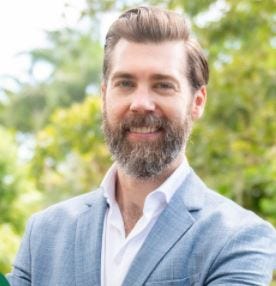By Rob Long
Last week Florida lawmakers made good on conservative provocateur Anthony Sabatini’s 2020 threat to file a bill to eliminate soil and water conservation districts statewide.
2022’s bill (SB 1078) originally aimed to abolish Florida’s 58 soil and water conservation districts. After widespread support for the districts, however, it was amended to instead limit access to districts’ board seats. The bill awaiting the Governor’s signature now requires candidates to either be actively engaged in agriculture or retired after at least 10 years in agriculture, employed by an agricultural producer, or an owner or lessor of agricultural land.

By Florida statute 582.02, districts are obligated to educate the general public about water resource protection, which — at least in Palm Beach County — often includes topics such as saltwater intrusion from sea level rise, freshwater scarcity, and algae blooms, issues not necessarily tied to agriculture.
The Palm Beach Soil and Water Conservation District, which includes a former South Florida Water Management District employee, a Farm Bureau board member, and a 2022 National Environmental Achievement Award Honoree, could be effectively disbanded for failing to meet the new qualifications. The current doomed board has facilitated $615,000 worth of free agriculture services to growers, coordinated more than $206,000 in free environmental education programs for public school students, and overseen a water conservation program that saved nearly 474 million gallons of water over the last three years.
If the governor signs SB 1078 into law, elections with these new requirements would occur this November and replace hundreds of district volunteer board members statewide. Cost-share programs funded through the Florida Department of Agriculture and Consumer Services, and county grants that save farmers millions will invariably suffer — not to mention the array of nonprofit relationships and education programs that will be lost.
This bill creates a scenario where many of Florida’s 290 soil district board seats go unfilled, and suffer a major loss in institutional knowledge.
Saltwater intrusion is only increasing with sea level rise. Coupled with 1,000 people moving to Florida per day, we’re headed towards an inevitable water scarcity crisis.
Our state is the front line of climatic disruption. Capriciously destroying a network of institutions that don’t impact taxpayers, that actually conserve billions of gallons of water every year, is a step in the wrong direction.
Rob Long is chairman of the Palm Beach Soil and Water Conservation District. This piece first appeared in the Palm Beach Post. It is syndicated by The Invading Sea, a Florida editorial board collaborative.


